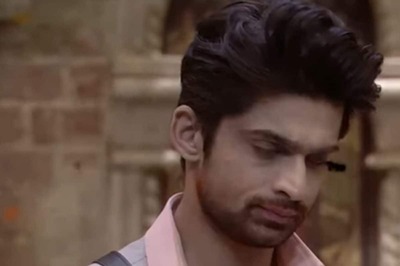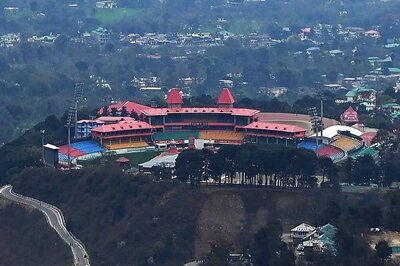
views
New Delhi: Devyani Khobragade is not a top news story for the American media. However influential US dailies like Washington Post, New York Times, Chicago Tribune and LA Times have been covering the developments related to the Khobragade incident. The American media is shocked by India's rage. These newspapers have been analyzing the whole incident from both US and Indian perspectives. According to the US media, what Devyani Khobragade has allegedly done is a clear violation of the US laws and she should be punished for it. They feel that Indians are siding with the wrong woman (Devyani Khobragade) and not with the wronged woman (Sangeeta Richards).
A glance at the US media shows that there is no sympathy for Devyani Khobragade among the US media and public. Clearly the US media and public are sympathizing with the maid Sangeeta Richards.
In a lead article 'Washington Post' describes India's reaction as disappointing. It mentions the victory of anti-corruption AAP's victory in Delhi and wonders how Indian media and government can back a diplomat, accused of a crime.
Washington Post says "India's reaction is disappointing. The anti-corruption party in India is gaining incredible momentum - the party even unseated the ruling Congress party in the country's capital, which was a huge victory. So why are Indians rallying for a privileged treatment of a diplomat? Why shouldn't she be treated as a common criminal? In India, someone with power would rarely be apprehended for paying a servant a low wage. Actually, it's laughable to think such a charge would even take place. But there was hope that a movement against corruption would change things."
It also laments that the India media and government are not giving any attention to the house maid Sangeeta Richard and her family, who are also fellow Indians.
It says, "Little attention has been given to the housekeeper, Sangeeta Richard. India is siding with a woman who was in the wrong - who lied, paid her help poorly and now is brazen enough to claim that she should not be treated like a criminal. What's "deplorable", to use the prime minister's words, is not Khobragade's treatment, which was standard, but the fact that many in India aren't speaking out against the treatment of the nanny."
Washington Post also makes a scathing attack on India's response in following sentences.
"After the global outrage and mass protests in India due to the Delhi gang rape that happened a little over a year ago, there was hope that unfair treatment toward women and opposition to immunity would skyrocket. Instead, many Indians are siding with the wrong woman in this battle. Like we saw with India's anti-gay ruling last week, the country is in the wrong once again."
Los Angeles Times (LA Times) also feels that the Indian response is unjustified. In an article it says "By contrast, a US law enforcement official called on US authorities not to back off in the face of Indian criticism. Jon Adler, president of the Federal Law Enforcement Officers Association, said those arrested by the agency "are treated fairly and equally, and the Marshals Service doesn't exempt anyone due to their gender, national origin or good looks. Perhaps Indian officials should direct their outrage towards Ms. Khobragade for her alleged visa fraud and the alleged servant wages she paid her housekeeper," Adler said.
Another influential newspaper Chicago Tribune, in an article on Devyani getting retroactive immunity says "But let's assume that the State Department, which has clearly been rattled by India's rage at Khobragade's treatment, agrees to credential her as a full diplomat. Does her immunity reach back to shield her against actions predating her new appointment? It can, according to Peter Rutledge, associate dean of the University Of Georgia School Of Law and an expert on international dispute resolution. Retroactive diplomatic immunity, Rutledge said, is quite rare - but it's not unprecedented.
The best-known example dates back to 1982, when Miami-Dade police officers attempted to search the home of Prince Turki Bin Abdulaziz of Saudi Arabia, who was suspected of holding an Egyptian woman against her will. At the time of the raid, in March 1982, Abdulaziz had no diplomatic credentials. He did have a burly security staff, which scuffled with police and fended off execution of the search warrant on the prince's home. Abdulaziz and his family sued Dade County for violating their civil rights. County officials countersued, claiming they were injured in the scuffle with the prince's staff.
On the other hand, retroactive immunity would quell Indian outrage and permit the State Department to save face."
US media and public are unanimous in their opinion that Indian government and media have overreacted to the issue. They feel that it has dented India's image as a country governed by the laws.



















Comments
0 comment